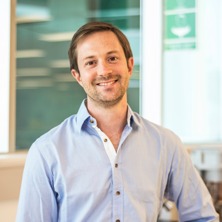Active Choices: A 'stepped down' program to promote group-based physical activity to DVA clients
This project developed and trialled Active Choices, a new physical activity support program for military service veterans and their families. The 12-week program linked participants to local opportunities for physical activity in their community, and taught them self-management strategies to help them maintain their new physically active lifestyle.
The project was trialled at UQ in 2020-2021, with 35 participants. Participants completed measures of physical activity and psychosocial wellbeing at the beginning and end of the program. Active Choices increased physical activity levels and improved social networks and psychological wellbeing.
The Centre for the Business and Economics of Health contributed to the project design and completed a cost consequence analysis, through our behavioural economics specialist Dr Jonas Fooken. This involved analysis of de-identified data from the Department of Veterans Affairs to determine any impact of the intervention on use of health care services and associated costs – for example, did Active Choices participation lead to reduced use of private exercise physiology or physiotherapy services? These costs savings were balanced against the costs of implementing the Active Choices program, with a publication of findings currently under review.
Want to know more?
- Project | Active Choices: A 'stepped-down' program to promote group-based physical activity to DVA clients.
- Journal article | Stepped-down intervention programs to promote self-managed physical activity in military service veterans: A systematic review of randomised controlled trials.
Project members
Our CBEH team

Senior Research Fellow
Centre for the Business and Economics of Health
Our collaborators
Associate Professor Nicholas Gilson
School of Human Movement and Nutrition Sciences, Faculty of Health and Behavioural Sciences, The University of Queensland
Dr Zoe Papinczak
School of Human Movement and Nutrition Sciences, Faculty of Health and Behavioural Sciences, The University of Queensland
Professor Wendy Brown
School of Human Movement and Nutrition Sciences, Faculty of Health and Behavioural Sciences, The University of Queensland
Dr Gregore Iven Mielke
School of Public Health, Faculty of Medicine, The University of Queensland
Professor Catherine Haslam
School of Psychology, Faculty of Health and Behavioural Sciences, The University of Queensland
